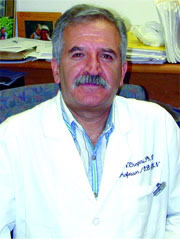 Authors have retracted three papers from the Journal of Physiology because they contained “falsified or fabricated data.”
Authors have retracted three papers from the Journal of Physiology because they contained “falsified or fabricated data.”
The papers, which address calcium signaling in heart muscle cells, are among the six pegged for retraction after an Office of Research Integrity (ORI) investigation into one of the authors, Igor Dzhura, formerly of Vanderbilt University. The ORI found that Dzhura had committed an enormous amount of fraud, involving dozens of faked images and more.
Dzhura was fired from a job at Novartis in November after the company discovered that his application had included the fraudulent work.
The three retracted Journal of Physiology papers and their citation figures, courtesy of Thomson Scientific’s Web of Knowledge, are: Continue reading “[W]e can learn from these bad actors:” Trail of retractions follows former Vanderbilt researcher’s fraud







